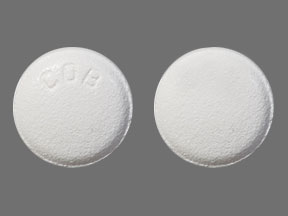Cotellic and Alcohol/Food Interactions
There is 1 alcohol/food/lifestyle interaction with Cotellic (cobimetinib).
Cobimetinib Food/Lifestyle
Moderate Food Interaction
MONITOR: Grapefruit juice may increase the plasma concentrations of orally administered drugs that are substrates of the CYP450 3A4 isoenzyme, such as cobimetinib. However, the interaction seems to affect primarily those drugs that undergo significant presystemic metabolism by CYP450 3A4 (i.e., drugs with low oral bioavailability), presumably due to the fact that grapefruit juice inhibits primarily intestinal rather than hepatic CYP450 3A4. Because pharmacokinetic interactions involving grapefruit juice are often subject to a high degree of interpatient variability, the extent to which a given patient may be affected is difficult to predict.
MANAGEMENT: Patients who regularly consume grapefruit or grapefruit juice should be monitored for adverse effects and altered plasma concentrations of cobimetinib. Grapefruit and grapefruit juice should be avoided if an interaction is suspected. Orange juice is not expected to interact with these drugs.
References (2)
- Cerner Multum, Inc. "UK Summary of Product Characteristics."
- (2015) "Product Information. Cotellic (cobimetinib)." Genentech
Switch to consumer interaction data
Cotellic drug interactions
There are 405 drug interactions with Cotellic (cobimetinib).
Cotellic disease interactions
There are 7 disease interactions with Cotellic (cobimetinib) which include:
- cardiomyopathy
- hepatotoxicity
- ocular toxicities
- rhabdomyolysis
- lung toxicity
- liver dysfunction
- renal impairment
More about Cotellic (cobimetinib)
- Cotellic consumer information
- Check interactions
- Compare alternatives
- Pricing & coupons
- Drug images
- Side effects
- Dosage information
- During pregnancy
- FDA approval history
- Drug class: multikinase inhibitors
- Breastfeeding
- En español
Related treatment guides
Drug Interaction Classification
| Highly clinically significant. Avoid combinations; the risk of the interaction outweighs the benefit. | |
| Moderately clinically significant. Usually avoid combinations; use it only under special circumstances. | |
| Minimally clinically significant. Minimize risk; assess risk and consider an alternative drug, take steps to circumvent the interaction risk and/or institute a monitoring plan. | |
| No interaction information available. |
See also:
Further information
Always consult your healthcare provider to ensure the information displayed on this page applies to your personal circumstances.


